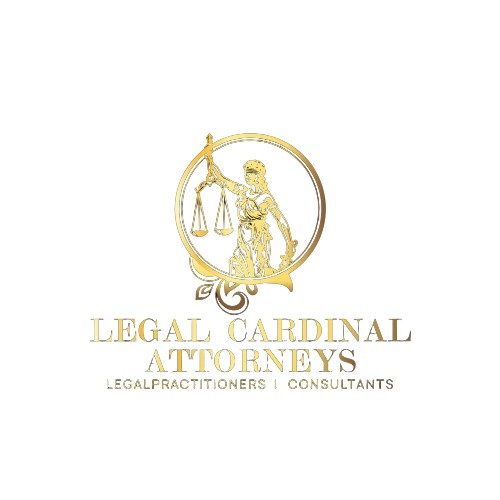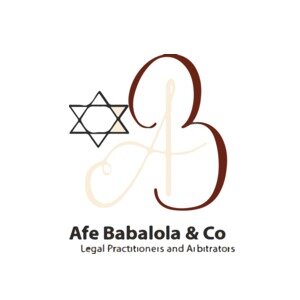Best Appeal Lawyers in Ibadan
Share your needs with us, get contacted by law firms.
Free. Takes 2 min.
List of the best lawyers in Ibadan, Nigeria
About Appeal Law in Ibadan, Nigeria
The appeal process in Ibadan, Nigeria, forms a crucial part of the judicial system, allowing parties to challenge the decisions of lower courts. Situated in the southwestern part of Nigeria, Ibadan follows the judicial framework established by the country’s legal system, which is based largely on English common law, statutes, and customary laws. Appeals can be made on various grounds, including errors in judgment, legal misinterpretations, or procedural faults, and are heard in the Court of Appeal, which has jurisdiction over Ibadan. This forum provides an important mechanism for ensuring justice and rectifying potential judicial errors.
Why You May Need a Lawyer
The appeal process can be intricate and demanding, requiring a nuanced understanding of legal principles and procedures. You might need a lawyer in situations such as:
- If you believe the trial court made a legal error that affected the outcome of your case.
- If factual findings against you were unsupported by the evidence presented at trial.
- If new evidence has surfaced that could significantly impact the decision.
- To navigate complex paperwork and procedural rules effectively.
- If you need to understand the potential outcomes and implications of filing an appeal.
Local Laws Overview
In Ibadan, as in the rest of Nigeria, appeal proceedings are governed by the Court of Appeal Act and the Court of Appeal Rules. Some key aspects include:
- The right to appeal is not automatic in all cases; permission may be required, especially in civil cases.
- Appeals need to be lodged within a specified timeframe, typically within 90 days of the judgment for civil cases.
- The grounds for appeal must typically involve a question of law, although there can be exceptions.
- Appeals are generally limited to issues that were part of the original case, though new legal arguments can sometimes be raised with permission.
Frequently Asked Questions
What is an appeal?
An appeal is a process through which you can request a higher court to review the decision of a lower court, typically on grounds of legal error or procedural issues.
How long do I have to file an appeal?
In Ibadan, the timeframe to file an appeal can vary, but you typically need to act within 90 days of the judgment for civil cases.
Do I need permission to appeal?
Permission may be required to appeal certain decisions, particularly in civil matters or when appealing to higher courts, depending on the specifics of the case.
Can I introduce new evidence in my appeal?
Generally, appeals are based on the existing trial record. However, there are rare circumstances where new evidence may be introduced, but usually with permission from the court.
What are the grounds for appeal?
Common grounds include legal errors, significant misinterpretations of law, the introduction of new relevant evidence, and irrational or biased judgments.
How much does it cost to file an appeal?
Costs can vary significantly based on lawyer fees, court fees, and other potential expenses. It's important to discuss potential costs with your lawyer upfront.
How long does the appeal process take?
The duration can vary, but it often takes several months to a year, depending on the complexity of the case and the court's schedule.
What happens if I win my appeal?
If you win an appeal, the appellate court may reverse or modify the original decision, or order a retrial, depending on the case specifics.
What if I lose my appeal?
If you lose, you might be able to appeal to a higher court, but this further appeal would typically require permission and must be based on strict grounds.
Is it possible to settle out of court during an appeal?
Yes, parties can reach a settlement even during the appeal process, often making the appeal unnecessary if both parties agree to terms.
Additional Resources
For further assistance, you may consider reaching out to:
- The Nigerian Bar Association (Ibadan Branch) for legal referrals.
- The Legal Aid Council of Nigeria for support with affordable legal services.
- The Nigeria Law School Library for access to legal texts and resources.
Next Steps
If you believe you have grounds for an appeal, it is advisable to consult with a qualified lawyer specializing in appellate law as soon as possible. Your lawyer can help assess the strength of your case, guide you through procedural requirements, and represent you in court. Begin by gathering all relevant documents from your case and scheduling consultations with potential attorneys to find the best fit for your legal needs.
Lawzana helps you find the best lawyers and law firms in Ibadan through a curated and pre-screened list of qualified legal professionals. Our platform offers rankings and detailed profiles of attorneys and law firms, allowing you to compare based on practice areas, including Appeal, experience, and client feedback.
Each profile includes a description of the firm's areas of practice, client reviews, team members and partners, year of establishment, spoken languages, office locations, contact information, social media presence, and any published articles or resources. Most firms on our platform speak English and are experienced in both local and international legal matters.
Get a quote from top-rated law firms in Ibadan, Nigeria — quickly, securely, and without unnecessary hassle.
Disclaimer:
The information provided on this page is for general informational purposes only and does not constitute legal advice. While we strive to ensure the accuracy and relevance of the content, legal information may change over time, and interpretations of the law can vary. You should always consult with a qualified legal professional for advice specific to your situation.
We disclaim all liability for actions taken or not taken based on the content of this page. If you believe any information is incorrect or outdated, please contact us, and we will review and update it where appropriate.

















